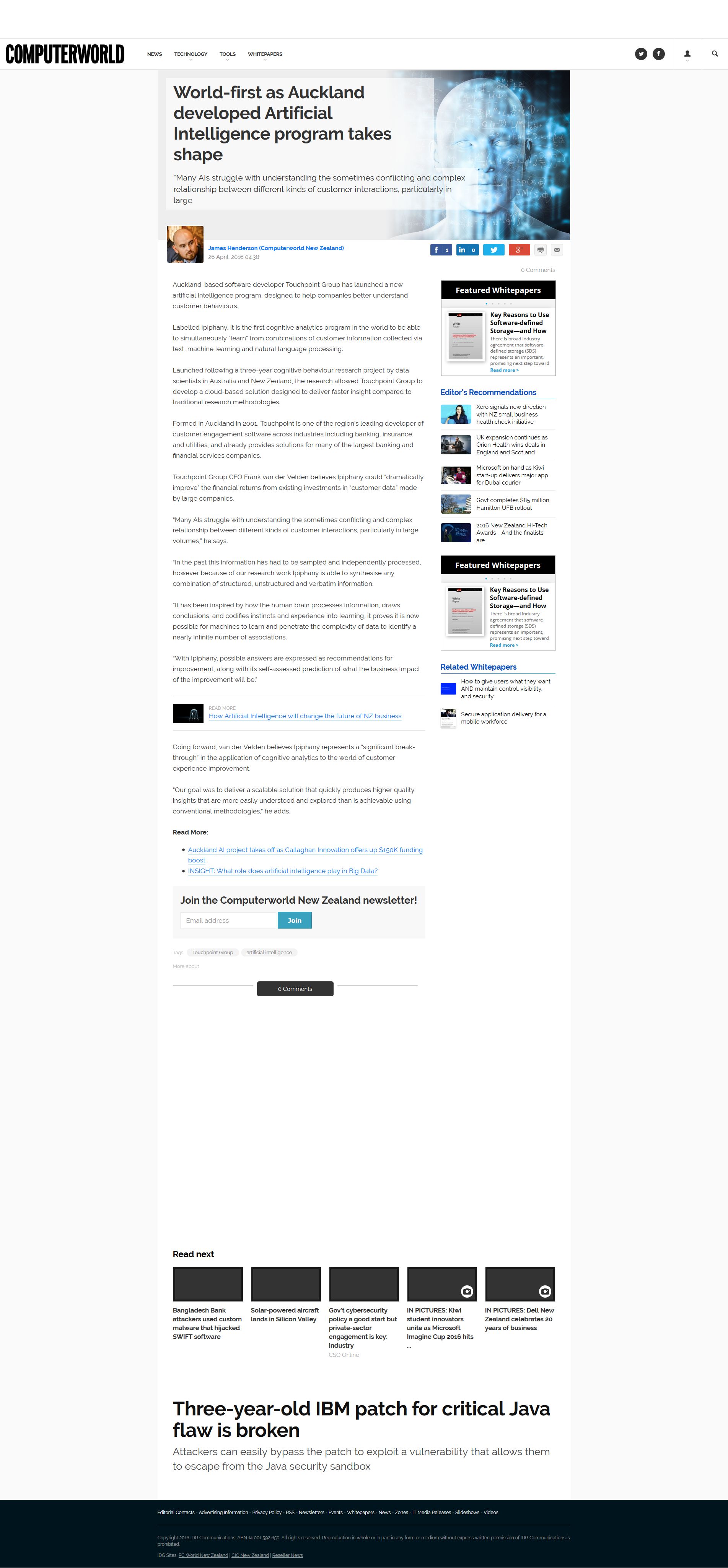
World-first as Auckland developed Artificial Intelligence program takes shape
Many AIs struggle with understanding the sometimes conflicting and complex relationship between different kinds of customer interactions, particularly in large
Auckland-based software developer Touchpoint Group has launched a new artificial intelligence program, designed to help companies better understand customer behaviours.
Labelled Ipiphany, it is the first cognitive analytics program in the world to be able to simultaneously “learn” from combinations of customer information collected via text, machine learning and natural language processing.
Launched following a three-year cognitive behaviour research project by data scientists in Australia and New Zealand, the research allowed Touchpoint Group to develop a cloud-based solution designed to deliver faster insight compared to traditional research methodologies.
Formed in Auckland in 2001, Touchpoint is one of the region’s leading developer of customer engagement software across industries including banking, insurance, and utilities, and already provides solutions for many of the largest banking and financial services companies.
Touchpoint Group CEO Frank van der Velden believes Ipiphany could “dramatically improve” the financial returns from existing investments in “customer data” made by large companies.
“Many AIs struggle with understanding the sometimes conflicting and complex relationship between different kinds of customer interactions, particularly in large volumes,” he says.
“In the past this information has had to be sampled and independently processed, however because of our research work Ipiphany is able to synthesise any combination of structured, unstructured and verbatim information.
“It has been inspired by how the human brain processes information, draws conclusions, and codifies instincts and experience into learning, it proves it is now possible for machines to learn and penetrate the complexity of data to identify a nearly infinite number of associations.
“With Ipiphany, possible answers are expressed as recommendations for improvement, along with its self-assessed prediction of what the business impact of the improvement will be.”
Going forward, van der Velden believes Ipiphany represents a “significant break-through” in the application of cognitive analytics to the world of customer experience improvement.
“Our goal was to deliver a scalable solution that quickly produces higher quality insights that are more easily understood and explored than is achievable using conventional methodologies,” he adds.